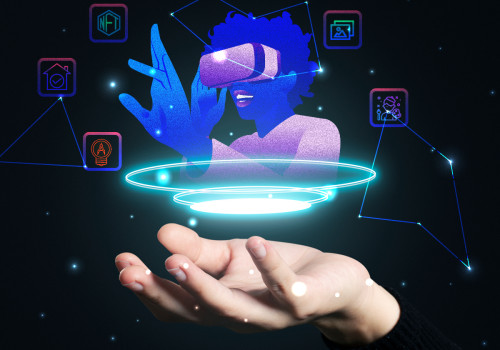
The concept of the metaverse is no longer science fiction. With giants like Meta (Facebook), Microsoft, and Apple investing billions, the metaverse economy is shaping up to be the next major evolution of the internet. Imagine a fully immersive digital universe where people work, shop, learn, socialize, and even own property all powered by blockchain, NFTs, and virtual reality.
What is the Metaverse Economy?
The metaverse economy refers to the digital financial ecosystem that operates inside immersive 3D virtual worlds. Just like the real world, the metaverse has its own assets, jobs, marketplaces, and currencies except everything exists virtually.
Key pillars of the metaverse economy include:
- Virtual Real Estate – Buying, selling, and renting land in virtual spaces like Decentraland or The Sandbox.
- NFTs (Non-Fungible Tokens) – Unique digital assets that represent ownership of art, collectibles, avatars, or property.
- Cryptocurrency – Digital money that fuels transactions within metaverse platforms.
- Digital Goods & Services – From clothing for avatars to virtual concerts and digital advertising.
This emerging economy is estimated to reach $5 trillion by 2030, according to McKinsey.
Virtual Real Estate: The New Digital Land Rush
Just as people invest in physical land, the metaverse offers virtual property ownership. Big brands like Adidas, Gucci, and even Samsung have purchased virtual land to build showrooms, host events, and connect with younger audiences.
Why is virtual real estate valuable?
- Scarcity – Platforms limit land supply, creating demand.
- Customization – Owners can build stores, offices, or entertainment venues.
- Monetization – Landowners can rent spaces, sell ads, or host paid events.
Virtual land is becoming the foundation of the metaverse economy, much like real estate is in the physical world.
Digital Goods and NFTs: Redefining Ownership
In the metaverse, identity matters. Avatars represent who you are, and digital goods (clothes, accessories, cars, even homes) define your lifestyle. NFTs allow users to truly own these digital assets, trade them securely, and prove authenticity.
Examples include:
- Virtual fashion – Gucci and Nike are selling digital sneakers and outfits.
- Digital art – NFTs by artists like Beeple sell for millions.
- In-game items – Weapons, skins, or characters that players can buy and resell.
NFTs turn digital creations into valuable, tradable assets, fueling a creator-driven economy.
Work and Jobs in the Metaverse
The metaverse isn’t just about fun and games it’s about real economic opportunities. New job roles are emerging, such as:
- Virtual architects & designers – Building 3D spaces and assets.
- Metaverse event managers – Organizing virtual concerts, meetings, and exhibitions.
- Digital marketers – Promoting brands in immersive worlds.
- Blockchain developers – Creating decentralized apps and payment systems.
As the digital economy grows, millions of jobs may shift to metaverse-based industries.
The Role of Blockchain and Cryptocurrency
The metaverse economy runs on decentralization. Blockchain ensures transparency, security, and true ownership of assets. Cryptocurrencies like Ethereum, MANA, and SAND serve as primary payment methods.
Blockchain benefits include:
- Trustless transactions without middlemen.
- Interoperability, allowing assets to move across platforms.
- Smart contracts to automate sales, rentals, or royalties.
This ensures that users not corporations have control over their assets.
Challenges Ahead
While the metaverse economy holds massive promise, challenges remain:
- Scalability – Platforms need faster, cheaper blockchain solutions.
- Regulation – Governments are still figuring out taxation and digital ownership laws.
- Accessibility – VR/AR headsets and high-speed internet are not yet universal.
- Security – Protecting users from fraud, scams, and data theft.
Overcoming these barriers will be crucial for long-term growth.
Conclusion
The metaverse economy is not just a trend it’s the next digital frontier. With opportunities in real estate, NFTs, digital goods, and jobs, it has the potential to reshape how we live, work, and play online.
Businesses that embrace the metaverse early will gain a competitive edge, while individuals will find new ways to earn, socialize, and express themselves. Also read about future of wearable technology.
